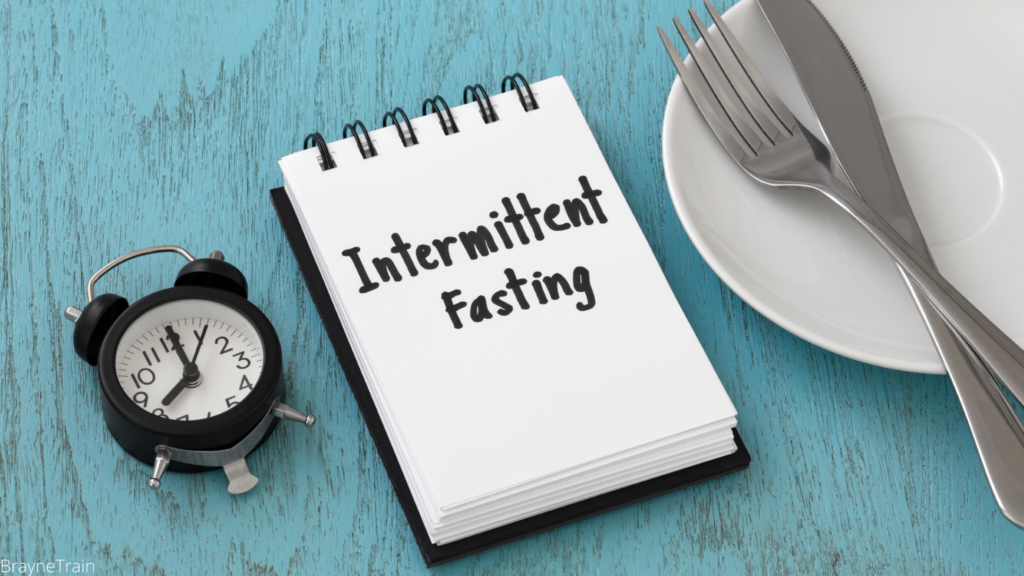
Is Fasting Good For You? The Answer May Surprise You!
There is a lot of debate surrounding the benefits and effects of fasting.
Some people claim that it has incredible health benefits, while others maintain that it can be harmful to your health.
So, what is the truth? Is fasting good for you or not?
In this blog post, we will take a closer look at fasting and whether it is good for your overall health.
Stay tuned!
Commonly Asked Question:
Is it OK to fast every day? There is evidence that suggests intermittent fasting is safe for most people. While it is not recommended to practice Prolonged fasting too often and indeed not every day. The 16:8 Method is safe to practice every day. This method involves fasting for 16 hours per day and eating during an 8-hour window.
What is Fasting?
Have you ever gone without food for an extended period of time? If so, you may have experienced the benefits of fasting firsthand.
Fasting is a practice that has been used for centuries to promote physical and spiritual healing.
In recent years, there has been a renewed interest in the health benefits of fasting.
Is Intermittent Fasting Good For You?

Fasting is an ancient and powerful weight loss tool. When done correctly, it can push the body into a state called ketosis, in which the body begins to burn fat for fuel.
This process produces ketones, which are the most efficient energy source for the body. Intermittent fasting, or going without food for 16 hours or more each day, is one of the most effective ways to trigger ketosis.
Fasting has many benefits, including improved mental clarity and concentration, reduced inflammation, and increased fat burning.
If you’re looking to lose weight and improve your overall health, intermittent fasting is a great place to start.
Top 10 Benefits of Fasting:
- lowers Blood Pressure
- Weight Loss
- Improves Diabetes
- Improves Insulin Resistance
- Lowers Blood Sugar
- Gets Rid of Food addiction
- Reduced Cravings
- Mental clarity
- Better memory
- Increase agility
Intermittent Fasting & Metabolism.

Intermittent fasting has gained popularity in recent years due in part to its proven health benefits.
One potential downside of intermittent fasting, however, is a slower metabolism if done too frequently.
This can occur when intermittent fasting is done on a daily basis, as the body becomes accustomed to periods of food restriction.

To prevent slower metabolism with intermittent fasting, it is best to change your fasting routine often.
For example, if you skip breakfast one week, skip dinner next week. This will help keep the body guessing and prevents slow metabolism from occurring.
In addition, intermittent fasting should not be done for extended periods of time ( longer than 23 hours), too often, as this can lead to a slower metabolism.
By changing up the intermittent fasting routine and avoiding extended fasts, you can help to prevent slower metabolism and enjoy the health benefits of this practice.
How Many Days a Week Should You Fast?
When it comes to intermittent fasting, there is no one-size-fits-all answer.
The frequency of your fasting will depend on your goals and the type of fasting you are performing.
For example, the 16:8 method can be done daily, as long as you mix up your fasting and eating times.
On the other hand, OMAD (one meal a day) should generally be practiced 2-3 times per week.
And finally, prolonged fasting (fasting for more than 24 hours) should not be done too often, as it can be taxing on the body.
Ultimately, it is best to experiment and find what works best for you.

However, it’s essential to listen to your body and not push yourself too hard. For example, if you’re feeling faint or dizzy, it’s probably time to break your fast.
And, as with any new diet or exercise routine, be sure to check with your doctor before starting intermittent fasting.
You’ll soon find the intermittent fasting schedule that works best for you with a little trial and error.
Takeaway
Have you tried intermittent fasting? If not, you may be missing out on some great health benefits. Intermittent fasting has been shown to improve mental clarity and cognitive function, increase lifespan, protect against disease, and promote a healthy weight. It can be practiced by almost anyone who is healthy enough to fast for 16 hours or more each day. If you’re interested in trying intermittent fasting yourself, consult with your doctor first to ensure it is safe. Then give it a go and see how you feel!
References
Müller MJ, Enderle J, Pourhassan M, Braun W, Eggeling B, Lagerpusch M, Glüer CC, Kehayias JJ, Kiosz D, Bosy-Westphal A. Metabolic adaptation to caloric restriction and subsequent refeeding: the Minnesota Starvation Experiment revisited. Am J Clin Nutr. 2015 Oct;102(4):807-19. doi: 10.3945/ajcn.115.109173. Epub 2015 Sep 23. PMID: 26399868.
Tapia PC. Sublethal mitochondrial stress with an attendant stoichiometric augmentation of reactive oxygen species may precipitate many of the beneficial alterations in cellular physiology produced by caloric restriction, intermittent fasting, exercise and dietary phytonutrients: “Mitohormesis” for health and vitality. Med Hypotheses. 2006;66(4):832-43. doi: 10.1016/j.mehy.2005.09.009. Epub 2005 Oct 18. PMID: 16242247.
Carlson AJ, Hoelzel F. Apparent prolongation of the life span of rats by intermittent fasting. J Nutr. 1946 Mar;31:363-75. doi: 10.1093/jn/31.3.363. PMID: 21021020.
Kökten T, Hansmannel F, Ndiaye NC, Heba AC, Quilliot D, Dreumont N, Arnone D, Peyrin-Biroulet L. Calorie Restriction as a New Treatment of Inflammatory Diseases. Adv Nutr. 2021 Jul 30;12(4):1558-1570. doi: 10.1093/advances/nmaa179. PMID: 33554240; PMCID: PMC8321869.
Liu Y, Hong F, Lebaka VR, Mohammed A, Ji L, Zhang Y, Korivi M. Calorie Restriction With Exercise Intervention Improves Inflammatory Response in Overweight and Obese Adults: A Systematic Review and Meta-Analysis. Front Physiol. 2021 Nov 15;12:754731. doi: 10.3389/fphys.2021.754731. PMID: 34867458; PMCID: PMC8634604.




